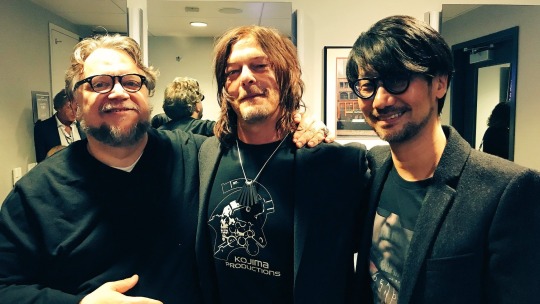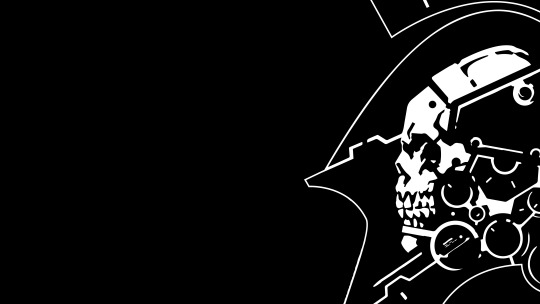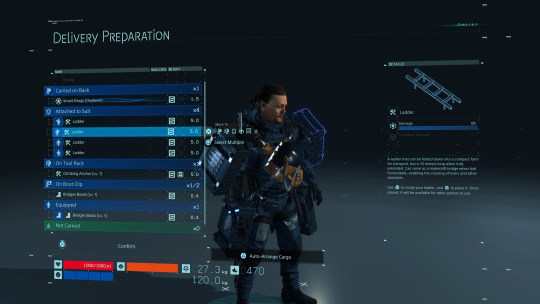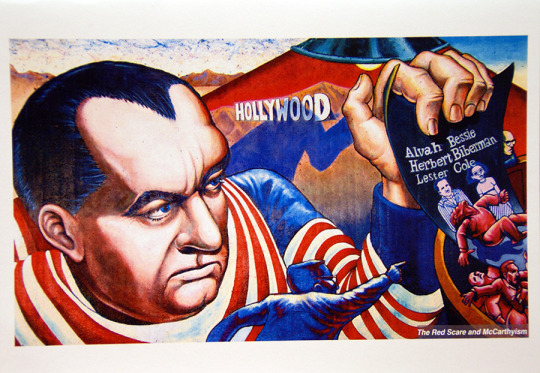#like he didn’t start out his career as the lead on a nuclear bomb project
Text

The Defenders (1972) #56
#it’s really surprising that it’s such a big deal that Bruce has been taken into custody in Russia#seriously like he’s been the Hulk for years so his career has pretty much been over for years#but I suppose that the gamma bomb that turned him into the Hulk wasn’t Bruce’s first invention for the U.S. military#like a lot of early Hulk stories were based around various other significant inventions of his#like he didn’t start out his career as the lead on a nuclear bomb project#he was already established and respected#but still#the fact that it would be ‘very embarrassing’ for the U.S. that Bruce was found in Russia and suspected of espionage#when there’s like an entire sector of the military dedicated just to capturing him#like he’s obviously not on good terms with the U.S. government anymore#he’s not spying for them#marvel#bruce banner#my posts#comic panels
0 notes
Text
Thoughts on “Death Stranding”

Death Stranding was one of the most anticipated releases of this console generation, and finally in November of 2019 the world got their hands on it. I got my copy about three days after it came out, and leading up to me playing it, I intentionally avoided all trailers and gameplay footage. I wanted to experience this game as freshly as possible when it was in front of me. I bought this game out of pure confidence in Hideo Kojima’s brilliance, and wanted to support him regardless. After being fired from Konami, the publisher he was with sincemost of his career, he created his own independent studios, and Death Stranding is their seminal title.
Hideo Kojima is most known for the Metal Gear series, and is the grandfather of stealth video games. I wasn’t a big fan of Metal Gear Solid 5, but Metal Gear Solid 1 through 4 are some of my favorite games of all time. I also adored P.T. the demo for his upcoming Silent Hill rebooted under Konami. It’s one of gaming’s greatest tragedies that it was discontinued, as P.T. is one of the most subtle and terrifying pieces of media I’ve ever experienced. Konami decided he was spending too much money on his projects, and they apparently weren’t about to give him millions of dollars further to finish Metal Gear Solid 5 and start a new game with Silent Hills. Death Stranding is a brand new original game made by Hideo Kojima’s brand new studio Kojima Productions (under Sony), and I have deeply conflicting feelings about it.
We play as Sam Porter Bridges; his name referring to his job and the company he works for. Bridges is a pseudo governmental organization which employs Porters, glorified couriers who deliver cargo between the fractured cities on a post-apocalyptic USA (now called the United Cities of America). Like any Hideo Kojima game, the beginning is front-loaded with cinematics and exposition. In the past, his cinematics may have been long (revolutionary for their time) but at least they were informative, dramatic, or entertaining. The cinematics in Death Stranding feel dull, lifeless, overly long, and worst of all, don’t deliver information of this vastly strange world very well. I was deeply confused constantly as to what the new terminology for very ordinary things were, and I don’t feel like I was given enough emotional connection or information to care much for this world.

Gameplay is all about lugging cargo on foot from one place to another. One of the most major fundamental aspects of this game that keeps me from liking it, is the world itself doesn’t make much sense. Not only are lone men sent to physically carry cargo on their backs between places miles apart, the hazards of getting from one place to another make this method of connecting cities extremely dangerous and anti-efficient. Not only is the terrain rough, the environment is populated with marauders called MULES who seek out to stop you, and ghostly entities called BTs who will essentially drag you to the underworld. These BTs are invisible to the naked eye, and a loud sensor on your shoulder tells you when they’re near. Sam has a special syndrome called DOOMS which allows him to at least partially see these BTs (at lest when he’s holding still). To add to it, Bridges don’t give him a vehicle or weapons of any kind. If someone dies in this world, soon their body causes a “Void Out” which means their corpse basically becomes a nuclear bomb. Yes, someone’s fresh corpse becomes a nuclear bomb, lets send out men by themselves through all these hazards as our means of connecting everyone to the network and making UPS deliveries.
This all would be more than enough if it weren’t for the Timefall. In this world, Timefall is basically the name for rain, and it instantly ages anything it lands on. We see this demonstrated when Sam puts his hand out in the rain, and the place where the rain drops, ages that tiny bit of skin immediately. This is essentially several times worse than if the rain was simply acidic. The problem with this is, why does the Timefall only seem to affect certain things? Why aren’t the futuristic buildings and roads constantly degraded? Why does Sam’s rain coat doesn’t degrade? Why does the entire environment except for what’s inconvenient for gameplay affected? Your cargo, if carried in the rain, will degrade, worsening your score at the end of delivery missions. You have to spray it with repair stuff to get it back to good condition. And if the rain is this destructive, why is Sam only equipped with a hood? Have you every been out in the rain in a raincoat with a hood? You still get wet, especially if you simply look up slightly. This whole world doesn’t seem well thought out, and is unique for the sake of being artsy and different.
The game, according to the map, seems to take place on the East Coast, somewhere around Southern New England, but the terrain itself looks like nothing from the East Coast (even after an apocalypse). The environments look more like volcanic Iceland or Northern Europe, and I question why Hideo Kojima chose the East Coast of the United States as the game’s location if the terrain resembles nothing like it. Most of Death Stranding is hiking from one place to another, getting packages to their destinations in as good of a condition as possible. As far as the walking mechanics are, they are very realistic and in-depth. All of your cargo is physically represented on Sam’s back, and each item has a weight. When walking, Sam has to use his balance to stay upright. Each arm is mapped to each trigger button, and as a hiker myself, I appreciate the level of detail of carrying a heavy load. The strange juxtiposition to me, is that this is a very serious game that takes everything super seriously, yet the main game is all about carrying a comically large load on your back. It looks comical compared to literally every other aspect of the game, and I think Death Stranding would have been a lot more fun if the cargo’s weight was simply represented, and not its physical presence.

The menus and much of the UI is also terribly designed. As a lifelong gamer, I shouldn’t have been driven to such levels of frustration trying to simply make sense of the menus. I’ve never had such a difficult time getting to know a game, and I would dissect this UI to study what not to do if you want to teach your players how your game works. It feels intentionally unintuitive, especially because most of what the menus do, are typical things found in any video game. All of these issues would be more forgivable if the gameplay was any fun, but when you have nothing to look forward to are managing meters, walking miles with 120 kilos on your back, and avoiding annoying enemies, it all kept me from wanting to keep pushing onward. There is a multiplayer aspect similar to Dark Souls, in that other players can leave ladders, ropes, and roadways for other players to use, but I live in a place where I can’t use multiplayer, so these helpful aspects did me no good.
Death Stranding is a truly bold and unique vision. I am genuinely glad Hideo Kojima was able to land on his feet so quickly, and form his own video game company with his own staff, vision, and goals. It’s uncommon that a triple-A game is able to take such interesting new routes with the open world format. Death Stranding is completely devoid of microtransactions and other money making bullshit filled in other major titles to release on consoles. While I did not enjoy this game, it seems like many other people did. Even if I don’t love every game, I’m all for this sort of visionary game design, and wish the industry encouraged more of these sorts of titles. It’s better than playing franchise games only pushed out to make a quick buck, or have little difference from their prior titles.
I like Death Stranding for what it is, but calling it a grind to play would be generous. Most of the mechanics and concepts feel deliberately tedious, and I’m not going to subject myself to two dozen more hours of it to uncover the story. Besides the gameplay, the logic of the world didn’t make any sense to me either, and the obtuse cinematics with a bloated sense of self importance when very little is accomplished, I found very little reason to care about anyone in this world. Hideo Kojima always wanted to make movies before he landed in the video game industry, and his passion for writing and directing has reflected that throughout his career. I have a feeling Death Stranding would have worked better as a TV series, and not as an interactive tedious game experience. I like what’s happening at Kojima Productions on a purely philosophical level, and I hope this game does well enough for them to continue making unique games. My personal feelings on Death Stranding are not overall positive, but I’m rooting for Hideo Kojima regardless
#death stranding#hideo kojima#kojima productions#sony#ps4#playstation#playstation 4#sam porter bridges#norman reedus
2 notes
·
View notes
Link
Saudi Crown Prince Mohammed bin Salman has been spending remarkably more time with his father in public since the international condemnation of last month’s murder of a U.S.-based newspaper columnist. They pressed the flesh with Saudis on a tour of conservative heartlands and last week inaugurated a giant industrial park together.
Donald Trump, meanwhile, did his bit to shield the prince. He has repeatedly avoided laying blame for the Oct. 2 killing of Jamal Khashoggi and lauded Saudi Arabia for a sharp drop in oil prices.
With such powerful people in his corner, the conventional wisdom may be that Prince Mohammed will survive the fallout from the brutal dispatching of a critic. Indeed, he headed next door to the United Arab Emirates on Thursday for talks with a key ally and looks increasingly likely to attend the Group of 20 summit in Argentina. But there are still many unknowns, and the fate of the young leader is the talk of the town in Riyadh.
In conversations among diplomats, Saudis and foreigners working in the kingdom for years, there are two questions everyone keeps asking: can Prince Mohammed remain the chosen successor to King Salman and -- if not -- what would happen to the economic and social reforms he’s been driving?
It’s difficult to determine how senior royal family members, tribal leaders and the security apparatus view the prince after a series of bungles abroad and repression of critics at home.
There could be repercussions from his marginalization of rival princes as he consolidated his grip on power. Sentencing to death five of the 11 people charged with Khashoggi’s murder may undermine the trust the Saudi security services, a key bulwark against opposition, have in the prince.
Turkey may have evidence that directly implicates the prince in Khashoggi’s death at the Saudi consulate in Istanbul, a connection that would inflame his opponents in the U.S. and Europe.
The murder, irrespective of whether Prince Mohammed ordered it or not, has been a game-changer, according to Kamran Bokhari, a Washington-based national security and foreign policy specialist with the University of Ottawa’s Professional Development Institute.
“It basically turned his life upside down,” said Bokhari. “He’s gone from having the promise of a long career to not knowing what his future is, to uncertainty whether he will be able to rule. It’s a stain that will remain with him and constrain him from doing much.”
The crown prince marketed himself to the West as the brash young royal who was going to modernize the kingdom and confront Islamic extremism, the man known as “MBS” who embodied the new Saudi Arabia.
His plan to sell a stake in the Saudi Arabian Oil Co. made him the darling of international bankers. Amid a cohort aging Saudi royals, the crown prince was set to lead the world’s largest oil exporter for decades. Now, his future is much less secure.
Signs of how little room he has to maneuver are already emerging. After Trump announced the US.won’t let Khashoggi’s murder jeopardize relations with the kingdom on Tuesday, oil prices swiftly headed toward $50 a barrel. The decline might be good for the prince’s rehabilitation, but it will further strain the slow-growing Saudi economy. Trump thanked the kingdom, implying a quid pro quo, and urged the Saudis to “go lower!”
The US president has been clear that his support for the prince -- against powerful voices from Congress and a CIA report that blamed Khashoggi’s murder on Prince Mohammed -- comes with a price.
ALSO READ: Saudis use biscuits, yogurt to hit back at Turkey over Khashoggi case
In a statement headlined “America First!” Trump said Tuesday the kingdom’s strategic importance outweighs the “horrible crime.” And he reminded Saudi Arabia that it has agreed “to spend and invest $450 billion in the United States. This is a record amount of money.”
At home, King Salman embarked this month on the first comprehensive tour of the kingdom since he came to power in 2015. The subtext was to try to repair some of the damage in relations with the religious establishment, tribes and regional princes as a result of his son’s policies.
The king, accompanied by Prince Mohammed, started out in Qassim, the most conservative region, promising millions in development projects at every stop. The prince’s pet project, a futuristic new city in the desert called Neom to rival Dubai, no longer seems to be the priority.
Saudi kings have used money to bolster support around the country during times of uncertainty. As the Arab Spring was spreading across the Middle East, King Abdullah announced billions in spending to ward off unrest.
King Salman may be betting that pledges of loyalty to him by senior Saudis may protect Prince Mohammed long enough for this to blow over. During his annual speech at the Shoura Council, the monarch didn’t mention the murder of Khashoggi as his son sat stern-faced next to Saudi Arabia’s grand mufti, the top religious official.
The king “knows exactly how to set up the home front to ensure it doesn’t turn against MBS,” said Ayham Kamel, head of Middle East and North Africa research at Eurasia Group. “The visits to the different provinces, who the king is meeting there, the money, all of that is part of a comprehensive package to ensure that the leadership is protected as it stands today. They are doing this to defend the current line of succession.”
When asked by CNBC what his message would be to those who say a regime change was needed for Saudi Arabia, Foreign Minister Adel al-Jubeir called the notion “ridiculous.”
ALSO READ: Saudis want a US nuclear deal; can they be trusted not to build a bomb?
“The leadership of Saudi Arabia represented in the king and the crown prince is a red line for every Saudi -- man or woman,” he said on Wednesday. “Every Saudi feels represented by his leadership, and every Saudi represents his leadership.”
In an interview on Saturday, a long-serving former head of Saudi intelligence cast doubt over any CIA report that incriminates Prince Mohammed in the murder of Khashoggi. “The CIA has been proved wrong before,” Prince Turki Al-Faisal said in Abu Dhabi, citing the agency’s assertions over chemical weapons before the invasion of Iraq in 2003.
Such allegiance, however, may not be enough. The 33-year-old crown prince has some powerful critics and enemies in the US, including senior lawmakers, and in Europe, where he was viewed with increasing hostility for his war in Yemen and his human rights record.
Domestically, there’s chatter about royal grumblings and speculation that the king’s full brother, Prince Ahmed, who returned from London a few weeks ago, could even replace him.
ALSO READ: CIA has recording of Saudi prince demanding Khashoggi be 'silenced'
Other senior royals were shunned as Prince Mohammed took over the army, state security and most of the country’s economic institutions. He threw out the system of consensus that had been in place for decades, a move that has likely caused resentment among senior princes.
“He must be constantly worried about his future,” said Bokhari. “Even though he has jailed potential opponents, bribed others, and coerced family members, how can he be confident that when he turns around there are not others who are plotting against him behind the scenes?”
An indication of the prince’s confidence in his own fate will be whether he attends the G-20 powwow starting on Nov. 30. Rulers who don’t feel secure at home generally avoid traveling abroad. Saudi Al-Arabiya television reported that the prince was going to the summit.
0 notes
Text
Memory lane / April 30

I’m going to take it back to 8th grade music class one more time to talk about chapter nine of Covering America. But really, so many of my high school classes prepared me for this chapter. Talking about 8th grade is just for continuity’s sake. Just after the verse of We Didn’t Start the Fire mentioning Walter Winchell, we have one mentioning Joe McCarthy, the force behind McCarthyism. Taking off due to the Associated Press’ dedication to printing news in a timely manner, McCarthyism was the pursuit against communists or anyone who might be a communist in America between the years of 1950 and 1954. When Joseph McCarthy accused you, it was likely you’d be put on a blacklist. His words were able to end careers in the blink of an eye. There was a restless demand for new leads at the time, so McCarthy’s quotes made for good reading. Now, I’d like to fast-forward to my 10th grade photography class where we discussed iconic pictures such as Migrant Mother, Human Torch and Raising the Flag on Iwo Jima to name a very select few. The third photograph, taken by Joe Rosenthal, garnered its fair share of controversy before it won a Pulitzer Prize. The photograph was so perfect, Rosenthal was asked if it was staged. Confused by what photograph was being questioned, as he took many that day, he answered affirmatively. Now, onto my 11th grade gym class, where we were sent out into the woods for orienteering. Because my high school was built near a site designated for atomic waste and the woods were that side, there were always rumors that we were going to die out there. The nuclear waste we were housing? The Manhattan Project. As America’s first attempt at creating an atomic bomb, it’s not shocking that this was a project left on a need-to-know basis. Even people working on the bomb weren’t clear on what the assignment was. William Laurence, however, put together a piece detailing what it was like to see it drop. Of course, it was highly criticized as inhumane, but the piece went on to gain worldwide recognition and a Pulitzer Prize.
0 notes